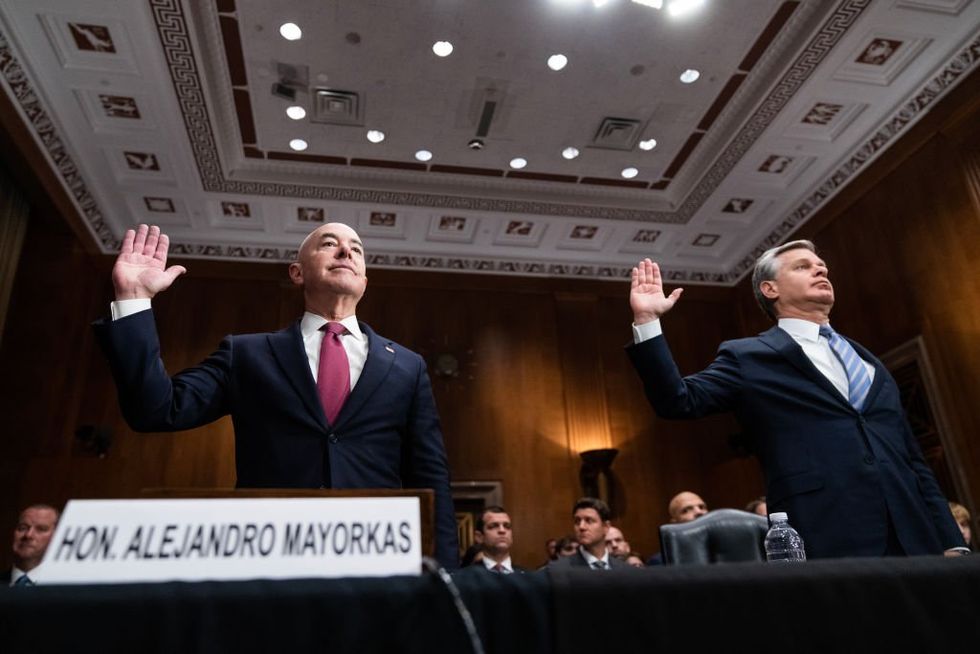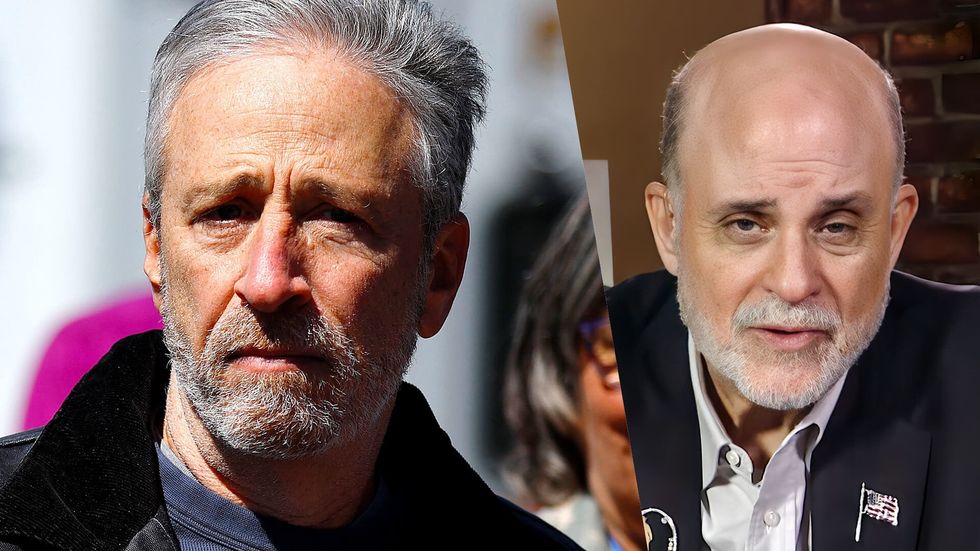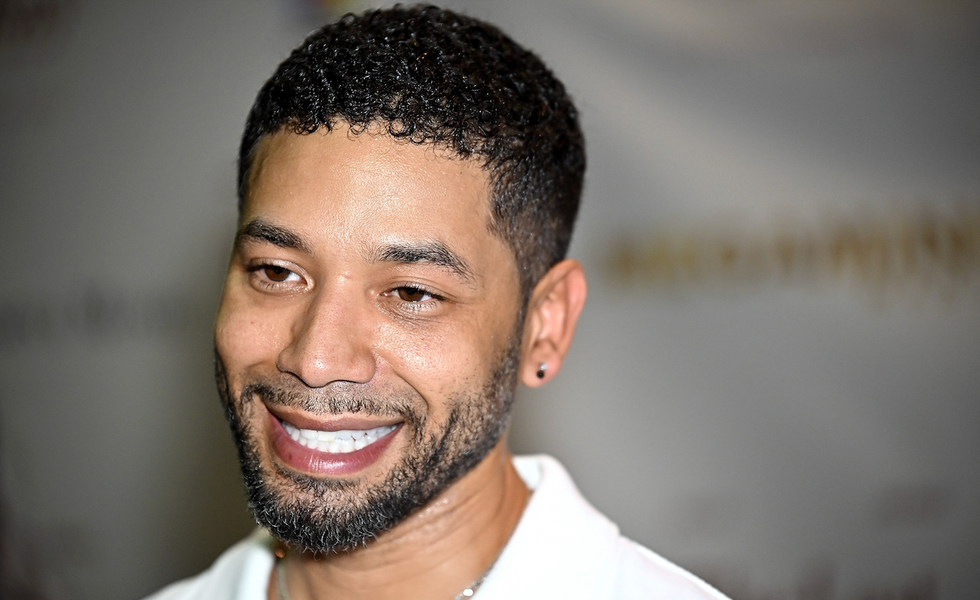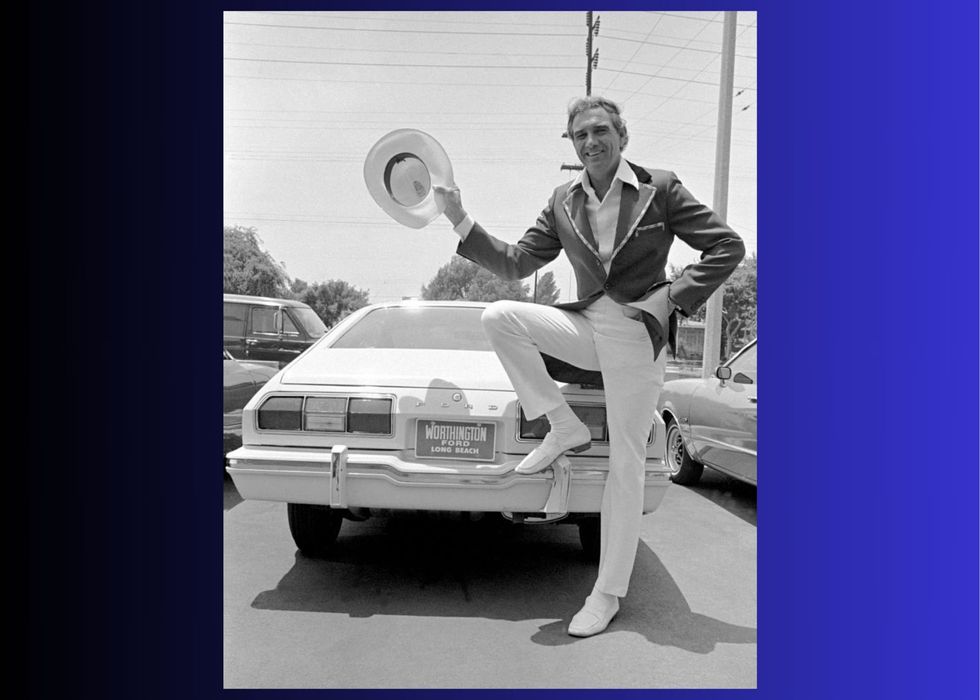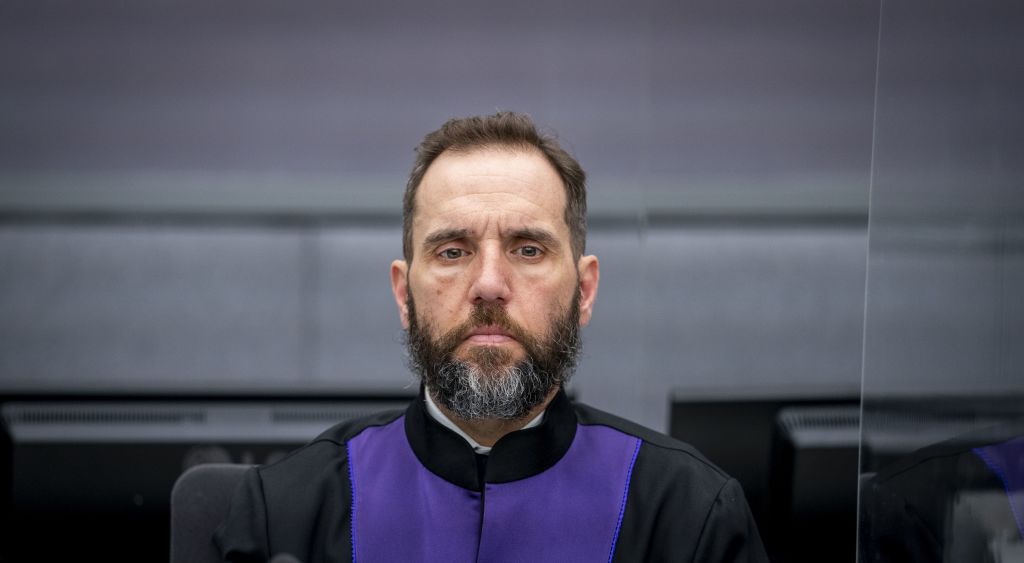Mobilizing The Faith Vote: Ralph Reed’s $62 Million Strategy
The following is an edited transcript of a Morning Wire interview between Daily Wire Culture Reporter Megan Basham and Ralph Reed, founder and chairman of the Faith and Freedom Coalition. They discuss the presidential race and how the Trump and Harris campaigns are trying to win over Christian voters. The faith vote has always been ...
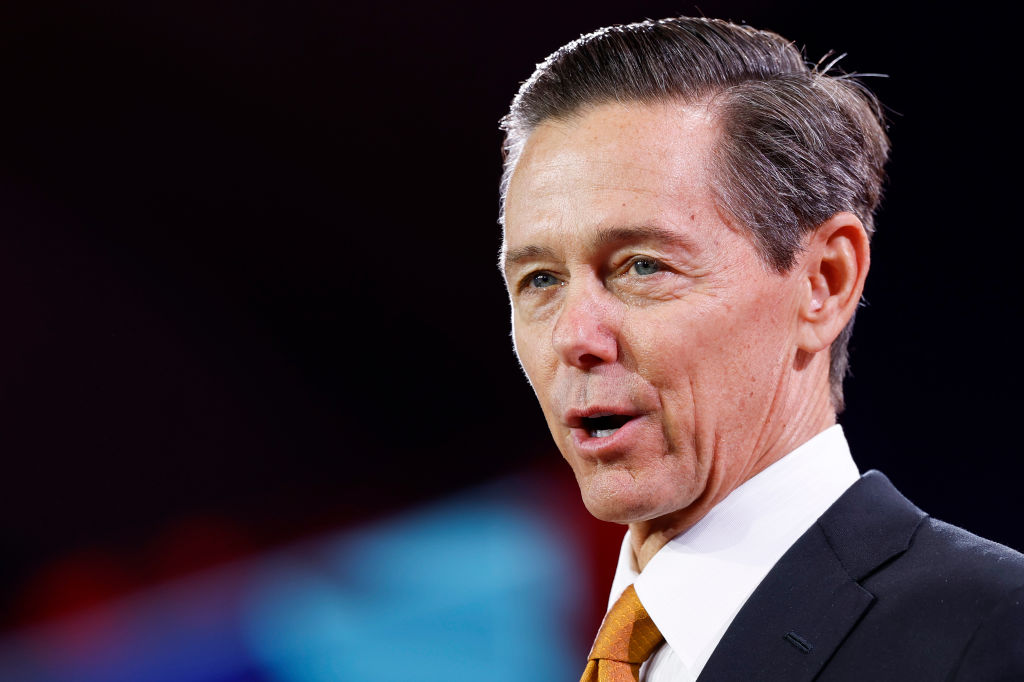
The following is an edited transcript of a Morning Wire interview between Daily Wire Culture Reporter Megan Basham and Ralph Reed, founder and chairman of the Faith and Freedom Coalition. They discuss the presidential race and how the Trump and Harris campaigns are trying to win over Christian voters.
The faith vote has always been especially crucial to the GOP. In recent elections, however, Democrats have been putting more effort into expanding beyond black churches and making a pitch to other Christian voting blocs, particularly evangelicals. This cycle has seen the rise of “Evangelicals for Harris,” a group that counts Billy Graham’s granddaughter and the chairman of Christianity Today’s board among its members.
* * *
MEGAN: Well, thank you so much for joining us Mr. Reed. To start, I saw that Faith and Freedom is planning to spend $62 million to turn out the evangelical vote this year. What specifics can you give us about that effort?
REED: Well, it is the most comprehensive and ambitious ground game program directed at voters of faith in modern American political history. We will knock on 10 million doors of homes that have between 17 and 18 million modeled evangelical Christians and other social conservatives registered to vote in those homes. That’s about half of all the homes that the entire Republican Party Vote knocked on in 2022. There’s never been an organization outside the Republican Party on the right that has visited this many voters at their door, engaging in face-to-face conversations. We’re also making 10 million Get Out The Vote calls with volunteers using an app where they can pick a battleground state and call voters in that state. And we’re also sending 24 million Get Out The Vote texts, and we’re focused on low propensity voters who have voted in one or less of the last three elections. We have 6,000 volunteers and about 4,000 paid staff engaging in this effort. We’re also distributing voter guides in 113,000 churches, and we’re doing voter registration drives in about 25,000 churches. So it’s a massive, massive effort, and I think this effort alone, by itself, is enough to make up the margin that we saw in 2020 where in Wisconsin the votes separating Biden and Trump were only 20,000, in Arizona 10,000, and in Georgia 11,700. I’m confident we can make up those margins and more just with this project alone.
MEGAN: Well, you know, you have to say that the Left seems to be recognizing the importance of that evangelical vote in a way that they maybe didn’t in the past. And we’ve seen efforts in recent weeks to brand Kamala Harris as a woman of strong Christian faith. Christianity Today ran a story about how she inspires black faith leaders. We’re also seeing a lot of legacy media outlets stressing Tim Walz’s Lutheran identity. So do you think this branding is working?
REED: No, because I think it misapprehends the faith vote. The media and many on the Left think that evangelical Christians and faithful Roman Catholics are driven by identity politics. They think that if a candidate says they’ve been born again, that they’re going to vote for them, or that they have a deep and abiding faith that they’re going to vote for them. We have so many examples of that not being true that I don’t know why they still think it. These voters are driven by issues and by policy and this is the most pro-abortion ticket in U.S. history, in Harris and Walz. It’s the most anti-Israel ticket in American history. It’s the most anti-religious freedom ticket in American history and Harris and Walz are on record supporting a scheme that would pack the Supreme Court and force the premature and unconstitutional retirements of three of the most conservative justices on the Supreme Court, including Clarence Thomas and Samuel Alito. They would replace them with justices to the left of Ruth Bader Ginsburg and Sonia Sotomayor. So, you know, those are the issues that burn in the hearts and give meaning to the souls of these voters, not whether or not you go to the same church they do or you can quote Scripture. And there’s no better example of that than Donald Trump — he had been married multiple times; he had been tabloid fodder for decades; he owned casinos in New Jersey and elsewhere. He was not somebody who had lived a perfect life, but he was pro-life, he was pro-Israel, he was pro-religious freedom. And he said he would appoint conservatives to the federal courts, including the Supreme Court, and he did so. He kept those promises and I assure you, there is a deep reservoir of appreciation and gratitude to Donald Trump in the faith community because of the promises he made and the promises he kept and the promise of a second Trump administration.
MEGAN: Well, I’d like to sort of turn the camera a little bit, but stay on this topic. We are now seeing a group called “Evangelicals for Harris” that was just established. And it’s not just fringe. Their first event includes the Chairman of the Board of Christianity Today as a speaker. We’re also seeing that Redeemer Presbyterian, the high profile Church founded by the late Tim Keller, is hosting a symposium on faith and politics that is exclusively featuring Harris supporters, including David French of The New York Times. What would you say to these churches and organizations about how they are living out their faith in the public sphere.
REED: Well, there’s nothing new about where Christianity Today is. Remember, they editorialized for the impeachment and removal from office of Donald Trump when he was previously president. They’ve been way beyond Never-Trump for a long time, and there’s nothing new about that. And you know Franklin Graham, the you know the the son of Billy Graham and heir to his ministry — Billy Graham, of course, was involved in the founding of Christianity today — has pretty much said that his father would be embarrassed if he were still alive by what’s happened to what he helped found. I think there’s some of that out there. Look, it’s a free country, and to be clear 15% of the evangelical vote is about six or seven million votes. It’s a lot of people, but it’s still only 15% of the evangelical community, and they’re a distinct minority. It’s a free country. They’re free to share their view, but I don’t think it’s going to work to advocate the election of people who are for abortion up to and in some cases, including infanticide and who advocate rolling back a conservative majority on the Supreme Court that, for the first time in a half a century, has given Christians the right to express their faith in the public square free from discrimination and persecution. In the Coach Kennedy case, where there was a coach in [Washington state] who would pray with athletes after games at mid-field, it was totally voluntary. He was disciplined by his school, that case went all the way to the Supreme Court. The court not only ruled in favor of Coach Kennedy and those athletes’ right to pray, but they overturned the so-called Lemon Test, based on a Supreme Court decision from 1971 called Lemon v. Kurtzman that, in its application, greatly prescribed and restricted religious speech in the public square. And finally, these voters, these believers, are as pro-Israel as any Americans since the founding of our country, over 225 years ago, and they believe strongly in the right of Israel to not only defend itself, but to have the backing of the United States as its stronger, strongest allies. And to have Kamala Harris out there trying to muscle and browbeat Israel into a ceasefire agreement that would allow Hamas and other Iranian military proxies to threaten Israel’s right to exist is not going to be supported by voters of faith. These are core moral issues for them. They’re not political issues, they’re moral issues. They’re issues of right and wrong, and they see Harris and walls as anti-Israel, anti-life, anti-family, anti-traditional values and anti-religious freedom. And correctly so.
LISTEN: Catch the full interview with Ralph Reed on Morning Wire
MEGAN: I think that’s what I’m getting at when you say that these are moral issues, that previously, in 2016 in 2020, the argument you saw from some of these folks was that they were morally opposed to Donald Trump, therefore we are going to sit out or vote third party. But now they are openly supporting Kamala Harris. Do you feel like fig leafs have kind of fallen this election?
REED: I may want to stay away from the fig leaf analogy. I don’t want to make this personal. I really don’t even know David French, I’ve read his stuff on occasion, he seems like a person of integrity. Seems like a fair minded and serious believer, even though I don’t agree with him politically, but to take the position that he’s now taking — that he has publicly taken in an Op/Ed in the New York Times — that he’s now not just not voting or voting for a third party or writing somebody’s name in, but he’s voting for Kamala Harris. And I think that for believers to do any of those three things, vote third party, stay home, or in the worst case scenario to vote for Harris and Walz is to be complicit in the immoral and unethical and indefensible policies that they would advance. They’re always talking about how we’re trying to protect constitutional norms — what more violates and assaults constitutional norms than trying to pack the Supreme Court? That’s been attempted one time in American history — technically more than one, you could talk about Adams and his 11th hour appointments of Federalist judges. There are a couple of other examples that we don’t need to get into, but the most extreme is Franklin Delano Roosevelt trying to expand the court in 1938. It was summarily rejected by the voters in those midterm elections. He withdrew the proposal. No one has dared to do it again until now. And that strikes at the very heart of our constitutional democracy, because it means that you’re okay with the Supreme Court interpreting and applying the constitution to the passage of laws unless they vote against you, and the minute they vote against you, you then want to pack the court and change all the decisions. And the irony of some of the Christian Never-Trumpers who are now coming out and saying they’re going to vote for Harris is one of the decisions that they’re trying to reverse is the decision that those folks, meaning the Christian Never-Trumpers, have devoted their entire careers to trying to overturn, which was Roe v. Wade — which other than Dred Scott, is probably the most morally indefensible and evil decision ever rendered by the Supreme Court. You could argue Plessy v. Ferguson, but there are very few of these. And so I think it’s a shame. Look, Donald Trump says and does things that I wish he wouldn’t say or do. But in the end, it’s not about whether or not the candidate’s personal style or personality, or even governing style is the one that I would prefer. It’s about policy and how it affects people. And if you implement a policy that will lead to the taking of innocent human lives, in many cases, after they the child can feel pain after they can survive outside the womb and in a handful of cases, not a lot, but enough to matter after they’ve been born, I don’t see how you can defend that morally or biblically. I certainly can’t, and I could never vote for Harris or Walz.
MEGAN: So what do you say to the evangelical voter who may be feeling a little demoralized about the GOP position on abortion right now and what they see as, at best, maybe a softening of the language in the GOP platform. How do you argue that they should still turn out the vote for the GOP?
REED: Well, I would encourage them to go back and actually read the Republican Party platform. By the way, Megan, I should be clear, it’s not the platform that I would have passed. It’s not the platform that I would have written but I can not only defend it, I can advance it on moral terms, because there are two things in that platform that most people may not even be aware of. The first is, it asserts that the unborn child is a person constitutionally and legally and therefore deserving of protection under the 14th Amendment’s clause that guarantees equal protection of all persons. The 14th Amendment was introduced and ratified after the Civil War to make sure that freed slaves were not discriminated against, that they were equal before the law. Obviously, that didn’t happen in one of the greatest tragedies of American history, but that was the aspiration and intent of the 14th Amendment. And that language, saying that an unborn child is a person for purposes of the Equal Protection Clause of the 14th Amendment, has been in the Republican Party platform since 1984. And remember that the 14th Amendment doesn’t just apply to the States, it also applies to the federal government. So when people say that when Donald Trump rewrote the platform at the convention in Milwaukee, he removed any role for the federal government, it’s just simply not true. So the 14th Amendment applies to the federal government. Secondly, the platform calls for the passage of bans on late term abortion, which is a term that is not defined, but which, for purposes of the pro-life movement, is generally defined as at least after 20 weeks, and as science advances, probably 15 weeks, and that language also clearly anticipates and includes action by the federal government. So I would say when you have one party that is calling for abortion at any stage of pregnancy for any reason, paid for with tax dollars, including under Medicaid, and the other party, saying that the unborn child is a person should be protected under the Constitution, it clearly is not today, and the child won’t be protected unless one or two things happens: Until either “A,” the Supreme Court rules if that language in the 14th Amendment does apply to the child; or until Congress passes a law that codifies that and then that is upheld by the court. So one of those two things has to happen. This is clearly an aspirational position, as it has been since 1984 but it is in there. Now, what is not in there, Megan is the human life amendment language. We had previously called for the passage of a human life amendment to the Constitution. I would say I still support that, okay, but I would simply make two points. Number one, in the 44 years that that has been in the Republican Party platform, no one has even brought to the floor for a vote a human life amendment of the constitution. So, I don’t think that you know that the fact that that isn’t in the platform means that we don’t have other tools at our disposal. The second point I would make is that the fact that we overturned Roe in the Dobbs decision, that was the main reason why we wanted a human life amendment. The purpose of the human life amendment was to overturn Roe. Roe has now been overturned. So while I still favor a human life amendment, I just want to set the facts straight on what the platform says. And I also think we should make it abundantly clear that the person running on that platform is Donald J. Trump, who is the most pro-life president in American history. He spoke at the March for Life. He defunded Planned Parenthood under regulations that he promulgated. He re-adopted and strengthened the Mexico City policy to ensure that U.S. tax dollars do not pay for abortions or promote abortion overseas. And most importantly, he appointed not one, not two, but three Supreme Court justices who were critical in the Dobbs decision. So I have no reservations at all about either the platform or this ticket.
MEGAN: All right. Well, Ralph Reed of Faith and Freedom, we thank you so much for your time.
REED: Thanks so much. Thanks for having me.
* * *
LISTEN: Catch the full interview with Ralph Reed on Morning Wire
Originally Published at Daily Wire, World Net Daily, or The Blaze
What's Your Reaction?















